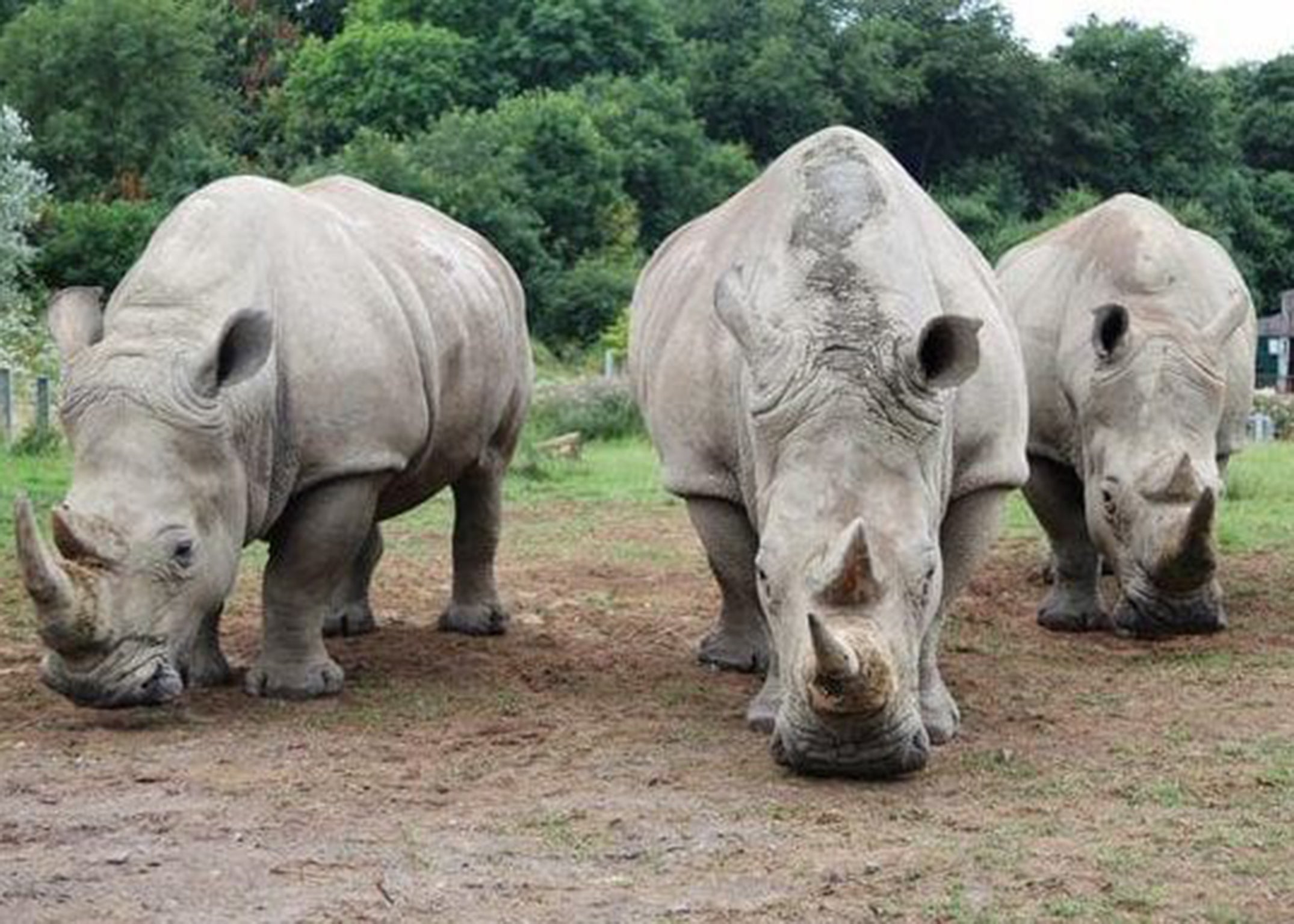White rhinos: Scientists reveal last-ditch attempt to save endangered species with world-first IVF treatment
The species has been hunted and poached almost to extinction for its horns

Scientists are hoping to save the critically endangered northern white rhino subspecies by attempting a pioneering IVF treatment.
The breed is the world’s rarest rhino, with only three individuals left – an elderly male and two females. The male, named Sudan, is 43 years old. The average lifespan of rhinos is between 40-50 years.
The females, a mother and daughter, have medical conditions that prevent them from conceiving naturally.
All three animals are protected under armed guard at the Ol Pejeta Conservancy in Kenya.
But in a final attempt to save the endangered species, fertility experts have taken three eggs from three southern white rhinos, a less rare breed, that are kept at Longleat Safari Park.
The nine eggs from the female southern rhinos were transferred to Avantea laboratory in Italy, where they will mature. They will then be fertilised in the lab using sperm from Sudan and also from several deceased southern rhinos to test the IVF procedure, and then carried out on the rarer northern species.
If successful, the IVF embryos will be implanted back into a group of females later in 2017.
“Effectively the females rhinos would act as IVF mothers,” said Darren Beasley, Longleat’s Head of Animal Operations.
“If the procedure works the hope would be that southern white females would carry the developing embryos for up to 18 months before giving birth.
“This IVF and embryo transfer programme truly is the last best hope to save them from extinction."
Longleat is the first UK-based zoological collection to take part in such a project, with several other zoo collections in Europe also participating.
Jon Merrington, head of safari at Longleat, told the BBC it was a very delicate process.
"Rhinos are a two tonne animal," he said.
"Even to extract the eggs is 1.5 metres inside the animal - it's such a complicated procedure."
He added that the ground-breaking project to create an embryo outside a rhino had never been done before.
The northern white rhino (Ceratotherium simum cottoni), has been hunted and poached almost to extinction for their horns. Powdered horn is used in traditional Chinese medicine to treat a range of ailments including fever, rheumatism and gout.
Join our commenting forum
Join thought-provoking conversations, follow other Independent readers and see their replies
Comments
Bookmark popover
Removed from bookmarks